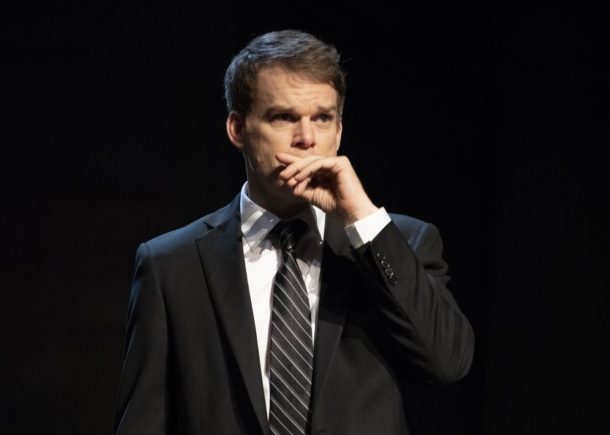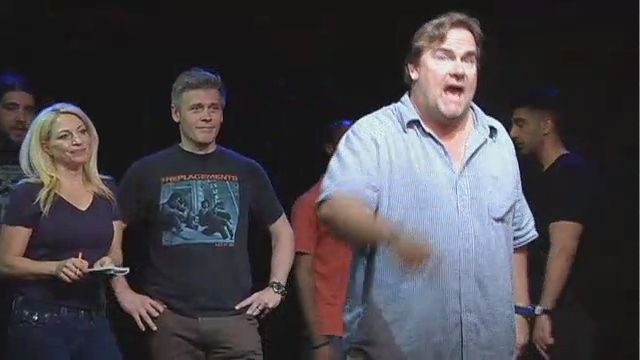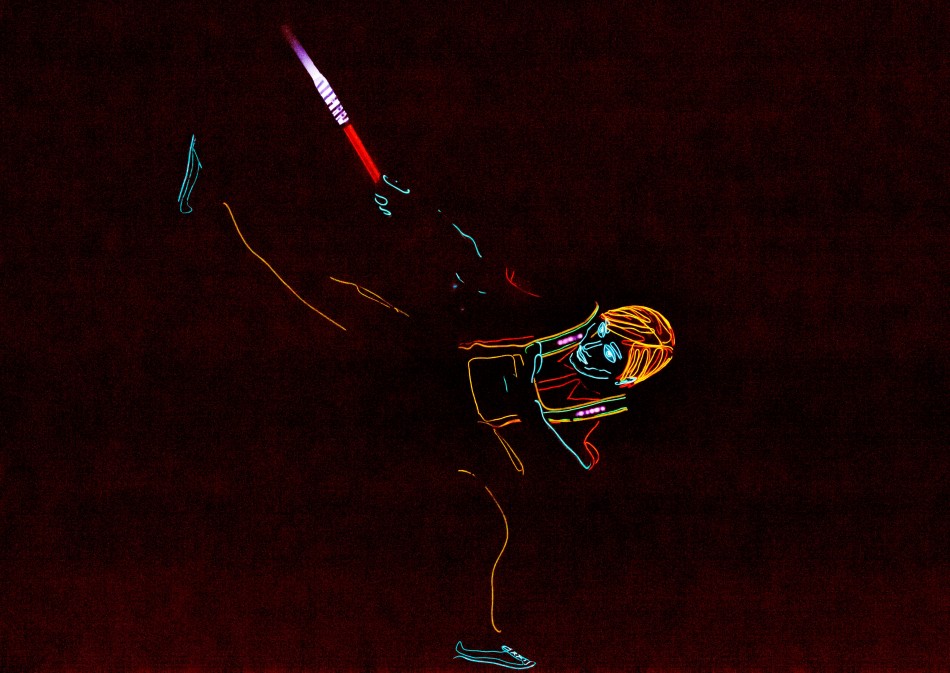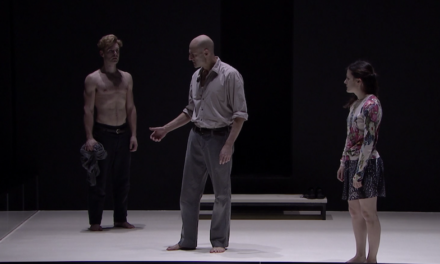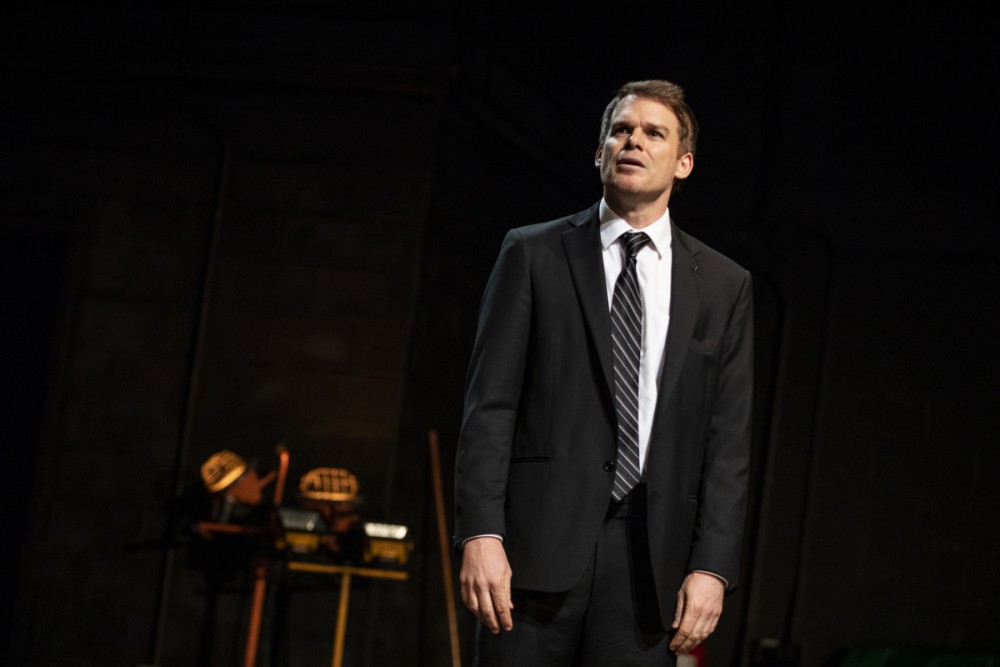
Michael C. Hall
by JK Clarke
Nothing Comes of Nothing.
In every art form there comes a moment, or several moments, when the masters of that art tear it apart and break it down to its bare elements in order to both analyze and teach the world about it. This idea is best illustrated by modernist movements in which painting was broken down to its essential structure by artists like Picasso, Mondrian or Johns into cubes, lines or sometimes entirely white or black canvasses. The theater world has not escaped these sorts of analyses at various intervals. Playwrights like Ionesco and Samuel Beckett and many others successfully explored structure, narrative and the interaction between character and audience in the early part of the 20th century. In 2004 playwright Will Eno took up the task again when he published Thom Pain (based on nothing)—a rambling, deconstructed monologue—to great acclaim, and for which he was awarded a Pulitzer Prize. But the play seems not to have withstood the test of time. A new Off Broadway revival on the Irene Diamond Stage at the Pershing Square Signature Center, starring Michael C. Hall (best known as Showtime TV’s chilling serial killer “Dexter”) and directed by Olivia Butler, playing through December 2, clearly fails to excite the way it did at its debut.
In a style quite reminiscent of Laurence Stern’s mid-18th century novel, Tristram Shandy, Thom Pain is the meandering, digressive and discombobulated narrative of a somewhat narcissistic and seemingly sociopathic bore who takes far too long to recount intertwined stories of a bee sting, a horrific account of a dying dog (and the soulless way “the boy” reacts) and encounters with a woman who may or may not be his lover and may or may not be imaginary. If his aim, as any story-teller’s should be, is to get us to care about him or any of his adventures, it’s an utter failure. And though that may be the play’s actual purpose—to break down those expectations—it remains pointless.
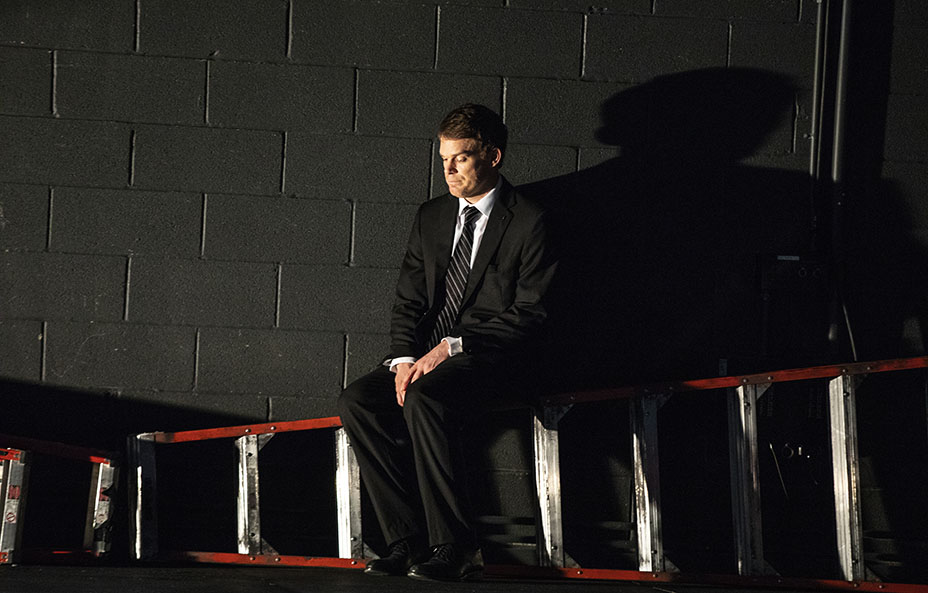

Thom Pain’s story is peppered with interruptions and artificial interactions with the audience, whom he clearly cares nothing about. At one point an audience member (obviously a plant, though it takes a moment for that to sink in) gets up to leave and Pain stops mid-sentence, staring in disbelief, then makes the most derogatory comment possible. He’s like comic Andy Kaufman, minus the wit.
It’s obvious that Eno’s goal with the piece is to defy conventional expectations. Where we are supposed to care about a character on stage, he ensures that we won’t. Where a narrative is supposed to be concise and linear, it most emphatically is not. Deconstruction of an artistic form by a talented artist represents not only a mastery of that form, but also a certain contempt for it, and Eno expresses absolute disdain for the monologue, for the actor and for the audience. Sure, it’s startling when first encountered and there are moments of self-realization that create laughter breaks, but Thom Pain’s performance feels more like a failed stand-up comedy set than an exploration of self.
It’s no fault of the brilliant and perfectly cast Michael C. Hall (wearing a Reservoir Dogs-style suit and a blank expression) that Thom Pain no longer seems relevant and has little ability to hold one’s interest. He does the best he can with the existing material. But why the Signature Center should want to foist this already archaic dreck on its dedicated audience is beyond comprehension. Leave this piece to the rebellious high school theater student who thinks he’s discovered a punk rock corner of the theater world. That’s where it belongs now.
Thom Pain (based on nothing). Through December 2 on the Irene Diamond Stage at The Pershing Square Signature Center (480 West 42nd Street, between Ninth and Tenth Avenues). One hour, ten minutes – no intermission. www.signaturetheatre.org
Photos: Joan Marcus


